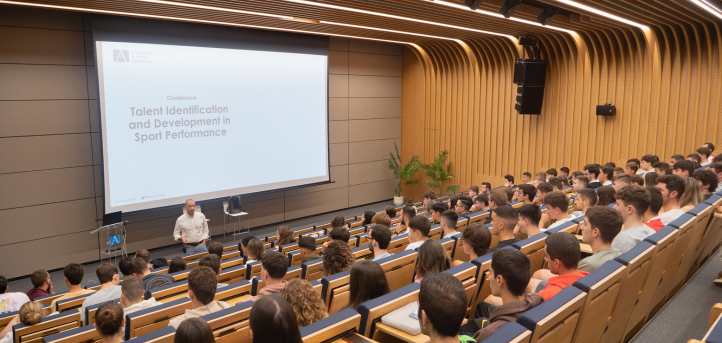The auditorium of the Universidad Europea del Atlántico (European University of the Atlantic) (UNEATLANTICO) hosts a conference for students of the degree of Physical Activity and Sport Sciences (CAFYD), given by Dr. Nuno Leite, a renowned researcher at the University of Trás-os-Montes and Alto Douro in Portugal.
The conference, entitled “Talent Identification and Development in Sport Performance,” focused on the identification and development of talent in sports. Dr. Nuno Leite, in his keynote presentation, explored the different factors that influence the detection of talent. He also delved into the common mistakes that have been made in many sports clubs.
Besides, he also stressed the importance of carrying out an adequate assessment of biological age and of knowing the key performance indicators (KPIs) specific to each sport, whether at a physical, technical-tactical, among other aspects. In addition, he presented the new research he is leading on the concept of bio-banding, a growing trend in the development of youth and introductory stages of sports. This methodology seeks to optimize and equalize performance and the sports process at early ages, considering the degree of maturity and biological age of the athletes.
On the other hand, masterful examples of how all this knowledge has been applied in the city of Vila Real (Portugal) have been presented. This is where the “Talentódromo” has been created, a training center that works with athletes at an early age to enhance their strengths and improve their weaknesses. The objective is to achieve a leap in quality from the technification stage (from 12-13 years of age).
To close the day, a round table discussion was held in which students from UNEATLANTICO had the opportunity to ask questions about the application of these concepts in contexts with fewer resources. Dr. Leite shared different strategies and tools to encourage students to apply this knowledge in their future professional contexts.


